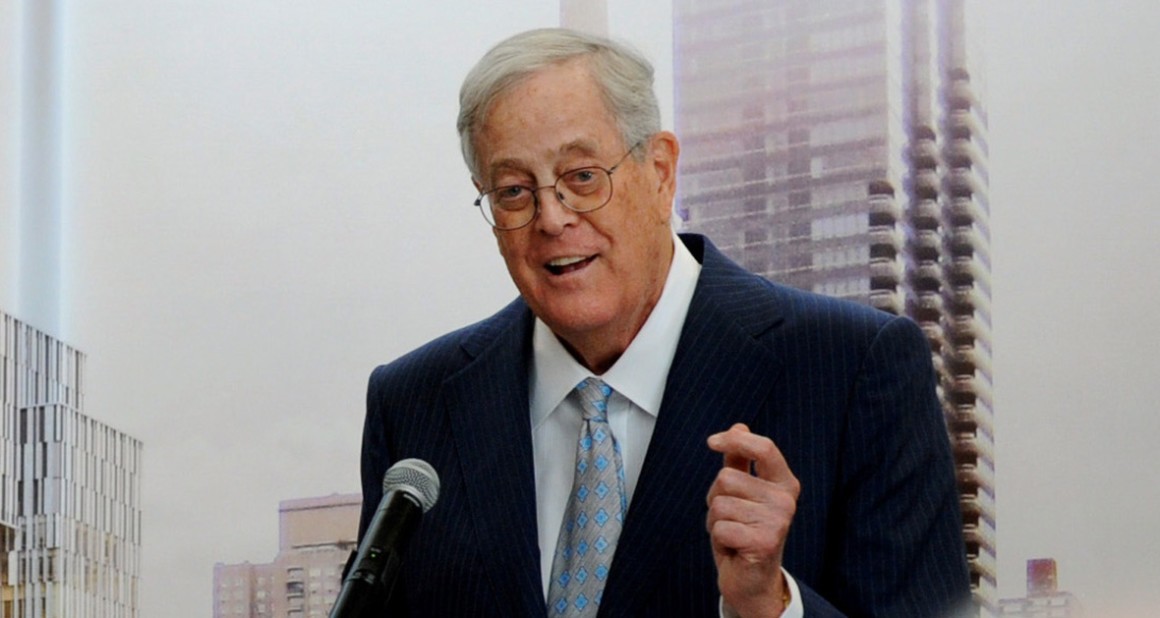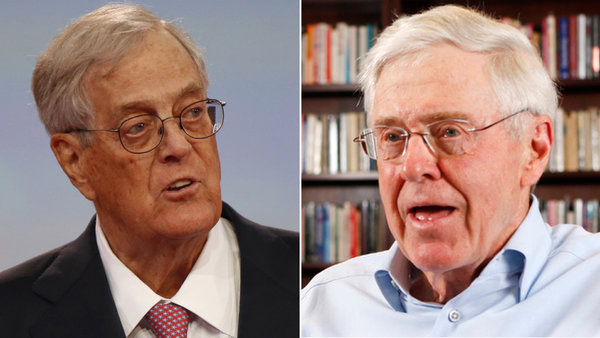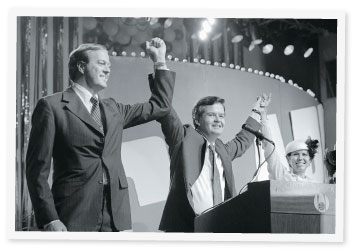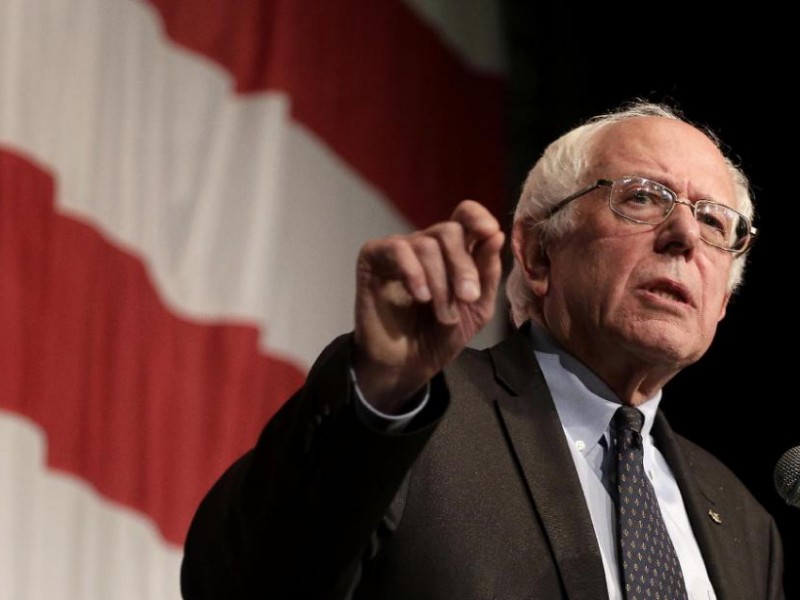The political network helmed by Charles and David Koch has quietly built a secretive operation that conducts surveillance and intelligence gathering on its liberal opponents, viewing it as a key strategic tool in its efforts to reshape American public life.
The operation, which is little-known even within the Koch network, gathers what Koch insiders refer to as “competitive intelligence” that is used to try to thwart liberal groups and activists, and to identify potential threats to the expansive network.
The competitive intelligence team has a staff of 25, including one former CIA analyst, and operates from one of the non-descript Koch network offices clustered near the Courthouse metro stop in suburban Arlington, Va. It has provided network officials with documents detailing confidential voter-mobilization plans by major Democrat-aligned groups. It also sends regular “intelligence briefing” emails tracking the canvassing, phone-banking and voter-registration efforts of labor unions, environmental groups and their allies, according to documents reviewed by POLITICO and interviews with a half-dozen sources with knowledge of the group.
The competitive intelligence team has gathered on-the-ground intelligence from liberal groups’ canvassing events in an effort to assess the technology and techniques of field efforts to boost Democrats, according to the sources. And they say the team utilizes high-tech tactics to track the movements of liberal organizers, including culling geo-data embedded in their social media posts.
Such stealth activities are the kind that campaigns and party operatives often fantasize about but mostly shy away from ― both because of cost and potential political backlash if exposed.
Marc Short, president of Freedom Partners Chamber of Commerce, the network’s central group, declined to discuss its efforts to track the left, generally, or to comment on the competitive intelligence team, which operates as a unit within his group. But he did not dispute that the effort is a focus for the Koch network as it tries to rebound from the disappointment of the 2012 elections and gears up to spend a jaw-dropping $889 million on policy and political battles headed into November 2016.
“We were caught off guard by what the left was doing in 2012, and we’d be foolish to be caught in that position again,” he told POLITICO.
The increasingly robust Koch network has seized on significant tactical advantages afforded to big-money independent organizations ― but not party committees ― in modern politics. Unlike party committees, which are mostly subject to five-figure donation limits, donor disclosure and all manner of campaign finance laws and party rules, the Koch network of non-profit groups and for-profit companies can accept unlimited cash without disclosing donors and faces few spending restrictions.
The competitive intelligence effort, reported here for the first time, also hints at the audaciousness of the Koch network’s mission. While the Republican Party focuses on winning elections, the Kochs want to realign American politics, government and society around free enterprise philosophies that they hope to spread more broadly.
A key to accomplishing the mission, from the Kochs’ perspective, is countering super PACs and other big-money groups funded by rich liberals, as well as allied public sector unions and academic and media elites. The Kochs’ allies feel that those forces have worked together for decades with Democratic politicians and government bureaucrats to institutionalize the philosophy that heavy regulation and taxation of business is the only way to ensure an equitable society.
The Kochs concluded that defeating this well-funded left-wing infrastructure requires tracking the professional left in real time ― a capability they realized they lacked after the 2012 election. In the run-up to that election, the Koch network spent $400-million-plus attacking Democratic politicians and policies, only to see President Barack Obama win re-election and his party maintain control of the Senate. A forensic audit of the network’s efforts concluded the Kochs had been out-maneuvered by the left on the airwaves, in the data war and on the ground. Vowing not to let that happen again, the network began investing in the competitive intelligence team and other efforts to keep tabs on the left.
To be sure, the Kochs’ operation isn’t the only one focused on pulling back the curtain on its opponents. In fact, liberal activists and groups have frequently worked to expose the activities of the Koch brothers and their network. But the competitive intelligence team, like so many other Koch-backed programs, appears to be unique in its scale and its thoroughly methodological approach.
‘The Opposition: Understanding Their Strategy and Infrastructure’
The Koch network’s interest in intelligence on the inner workings of the left was revealed by a secret audio recording of a panel at a June 2014 closed-door donor gathering at the tony St. Regis hotel in Dana Point, Calif. The session, called “The Opposition: Understanding Their Strategy and Infrastructure,” focused on the group that the Kochs’ inner circle regards as the Rosetta stone for figuring out, and ultimately neutralizing, the big-money left ― the Democracy Alliance.
The group, which is meeting this week in Washington, D.C., is a club of wealthy liberal donors and influential operatives. Since its creation in 2005, the DA, as the club is known, has steered more than $500 million to endorsed groups supporting Democratic politicians and liberal causes like fighting carbon emissions, income inequality and the role of money in politics, while expanding voter access, abortion rights and gay rights.
As a fundraising vehicle, it’s the closest thing on the left to a mirror image of the Kochs’ operation, though the cash raised by the Koch network in recent years has far eclipsed the amount credited to the DA. Donors to both networks write huge and mostly untraceable checks to a collection of endorsed for-profit companies and non-profit groups registered under sections of the tax code ― 501(c)3 and 501(c)4 ― that do not require the disclosure of donors’ identities.
During the session at the St. Regis, Mark Holden, a key Koch legal and policy advisor, pointed out the irony in liberal attacks on the Kochs’ secretive spending, calling the DA “a shadowy network of c(3)s, c(4)s ― who don’t disclose their donors, remember — who attack us as a shadowy network of c(3)s, c(4)s) … Whatever they may say about us goes the same for them.”
But Holden told the donors, according to the audio recording, which was obtained and posted by a liberal blogger, “We’ve been able to learn a lot more details about them in the last couple of months from documents that someone in the group, Democracy Alliance, left behind at their last seminar. And it’s very interesting stuff. And, at the end of the sessions here, we’re going to have some handouts, and you’ll be able to see some of the documents that we were able to get a hold of.” He adds quickly ― and to some laughter ― “I’m general counsel and I just want to say it was all legit, legal, appropriate.”
As Holden discussed the Democracy Alliance’s efforts, internal DA documents were projected onto a screen at the front of the bronze-chandelier-lit St. Regis ballroom, including a “portfolio snapshot” featuring descriptions of 21 groups that the DA recommended for funding and a breakdown of the “core functions of the progressive movement.”
‘Like the CIA’
It is unclear precisely which documents Holden presented to donors (though similar documents appear to have been published in the weeks before and after his presentation by a handful of media outlets, including POLITICO) or precisely how the documents were obtained.
Holden ― who sits on the board of Freedom Partners Chamber of Commerce, which organized the St. Regis gathering and which oversees the competitive intelligence team ― declined to comment.
The competitive intelligence team is run by a veteran Republican researcher named Mike Roman, who is listed as Freedom Partners’ vice president of research on the tax filing that group publicly released on Tuesday. That filing cites Roman’s salary and benefits at $286,000 last year.
His team is part of Freedom Partners, but is managed through a limited liability company called American Strategies Group LLC, or ASG for short. ASG is set up as a type of corporate structure known as a “disregarded entity”, which exists only as a part of its parent group ― in this case Freedom Partners ― for the purposes of mitigating legal risk and separating revenue streams for accounting and tax compliance purposes.
ASG was the conduit for $13.3 million of Freedom Partners’ cash between late 2012 and the end of last year, according to tax filings submitted to the Internal Revenue Service by Freedom Partners, including the filing publicly released on Tuesday covering 2014. It shows that ASG controls a holding company called CAVHOCO, Inc., which received a capital contribution of $17.5 million from Freedom Partners last year. CAVHOCO sits at the center of a confusing web of disregarded entities and holding companies, including one called Demeter Analytics Services, Inc. That entity, which is the holding company for the Freedom Partners-owned data firm i360, was paid $11 million by Freedom Partners in 2014 for professional services, according to the tax return. Separate tax returns also listed Roman as trustee of a mysterious non-profit group called Public Engagement Group Trust, which appears to be dormant.
Roman, who did not respond to requests for comment, has worked to keep himself and his activity low-profile even within the discreet Koch operation.
One former network official said that when people were summoned to meetings at ASG’s offices, they sometimes had trouble finding the suite. “They told people that’s the way they liked it,” the official recalled. “They act all cloak and dagger – like the CIA. There was a joke about how hardly anyone ever met Mike Roman. It was like, if you wanted to find him, he’d be in a trench coat on the National Mall,” said the former official.
The regular intelligence briefings from Roman’s team, which are sent from an address ending in “amersg.org” to high-ranking network employees, begin with a warning that “This briefing contains information that is confidential and may be legally privileged. If you are not an authorized recipient, you are hereby notified that you are forbidden to read, disseminate, distribute or copy any of the material contained within. Authorized recipients are hereby notified that any dissemination, distribution, or copying of this briefing is strictly prohibited.”
One such briefing sent in the weeks before the 2014 midterm elections and obtained by POLITICO contained highly detailed race-by-race breakdowns of the activities of liberal campaigns and their big-money supporters ― as well as conservative big-money groups ostensibly allied with the Kochs. It’s the sort of granular briefing that could be used to help the Koch network decide the most impactful ways to direct its own election spending. And it bears the hallmarks of research that combines close tracking of public information with original analysis of source documents, and possibly a dash of on-the-ground intel like that which could be gleaned by having an operative attend campaign events.
The briefing notes that in Arkansas, where there was a hotly contested Senate race between Koch network favorite Tom Cotton and Democratic incumbent Sen. Mark Pryor, Democrats were holding a statewide get-out-the-vote training in Little Rock, as well as a college organizing conference, while an immigrant rights group was “phone banking regularly with the intent of registering voters.” But the briefing also contains big-picture analysis flagging that union-affiliate Working America “has 400 paid canvassers knocking on 5,000 doors daily across 13 states through Election Day, especially focusing on Senate races in AK, IA, KY, MI, and NC. NRSC Vice Chair for Finance Sen. Rob Portman (R-OH) said the NRSC isn’t planning to devote any more significant resources to shore up key candidates in the red states of Kansas, Kentucky and Georgia.”
‘Scared to death of moles’
In addition to delving into the left, the competitive intelligence team also monitors potential Koch network threats, according to sources familiar with it. It tracks people deemed suspicious outside the offices of Koch network groups, circulating be-on-the-lookout photos to internal network email lists, while keeping an eye on the network’s own ranks for possible leakers or disloyal employees.
One former network executive remembers an email containing a photo of a man identified as an operative with the environmental group Greenpeace who allegedly had been spotted taking his own photos outside the network’s cluster of offices in the Courthouse neighborhood of Arlington.
Connor Gibson, a Greenpeace researcher who focuses on the Koch network, said he visits its component groups’ offices once a year to pick up their tax filings, and he speculated he could have been the operative photographed by the competitive intelligence unit. While he said he’s never sought to conceal his identity during such visits, he added “If the Kochs consider me an opponent, I’m flattered.”
In another instance, sources say, Roman’s team set out to identify an IT contractor who was working for one of the network’s groups and was posting anonymous messages to Reddit, proclaiming that he worked for the Koch brothers but despised their stances. Within 48 hours, the team had sleuthed out the offender and his contract was terminated.
“They were scared to death of moles,” said the former executive.
A separate source ― an organizer who’s worked with the unit ― described it as “a full opposition research operation, only at about 10-times the level of any political campaign.” The organizer added “my guess is that most people inside the network don’t even know about it.”
Koch allies emphasize that the brothers and their network have been targets of regular sleuthing by the left. A nonprofit group called American Bridge 21st Century ― which is aligned with Hillary Clinton and the Democracy Alliance ― this year launched a $3-million project dedicated to researching, tracking and attacking the Kochs. Its staffers have been spotted recording the proceedings at Koch network events and appearances by the brothers, and it took credit for unearthing a trove of documents featured in a New York Times story about David Koch’s 1980 Libertarian vice presidential campaign. The group does not appear to be behind the untraceable recordings made from inside closed-door Koch donor gatherings over the years ― like the one of Holden’s dissection of the Democracy Alliance at the St. Regis.
Holden told the donors at the St. Regis that the big-money liberal groups in the Democracy Alliance were pursuing a two-pronged strategy that bears some similarities to the tactics of the Koch network. “What they do is they try to build a permanent infrastructure to win elections, and they obsess about us ― all of you,” Holden said. “And it’s the old quote ― first they ignore you, then they mock you, then they attack you, and then we win. We’re close to winning. I don’t know how close, but we should be, because they can’t attack the ideas. They don’t have the real path. All they do is target and they just try to silence people. You know, they’re afraid of us. They really are. They’re afraid of this room.”
Source: http://www.politico.com/story/2015/11/the-koch-brothers-intelligence-agency-215943#ixzz3rrTJfRkt





'The Koch intelligence agency' have no comments
Be the first to comment this post!